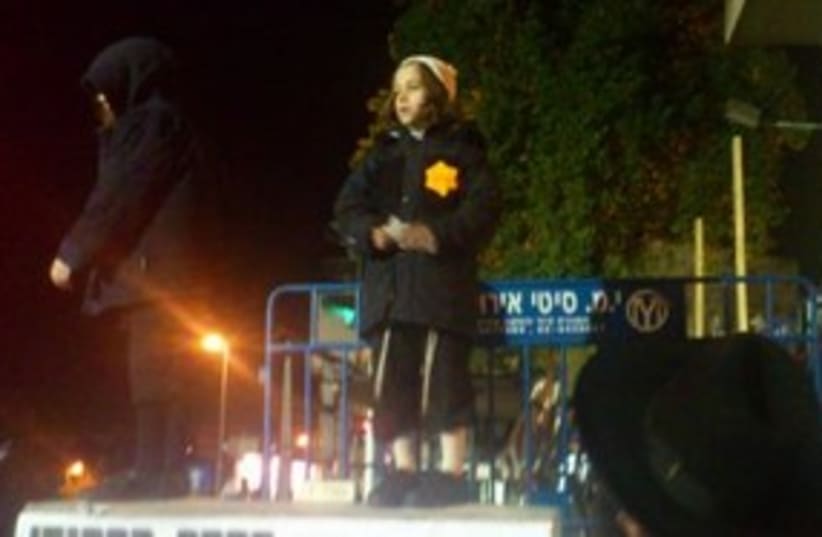Legislation making it illegal to use Holocaust symbols, or the nickname “Nazi,” in a non-educational or historical context passed a preliminary vote following a raucous debate in the Knesset.Opposition lawmakers lamented that the bills, proposed by MK Shimon Ohayon (Likud Beytenu) and MK Elazar Stern (Hatnua), constituted a violation of free speech.According to the proposal, the use of Nazi or Holocaust symbols, calling someone “Nazi” or similar names or expressing hope that the Nazis’ plan will be completed will carry a NIS 100,000 fine and can be the subject of civil suits.
“I am the daughter of Holocaust survivors, but I call on everyone to vote against this bill,” MK Shelly Yacimovich (Labor) said. “This law would have put [philosopher] Yeshayahu Leibowitz in prison for six months.”“Does the use of Holocaust concepts in Israel legitimize anti-Semitism? Do you not have any better bills to propose?” Yacimovich asked.MK Yisrael Eichler (United Torah Judaism) said that the current text of the bill is “cheating” and seeks to prevent people from protesting.“I respect the memory of the Holocaust no less than anyone else, but is this what the plenum is doing these days? This bill is an embarrassment.Educate your children.Not everything has to be passed as a law,” Shas chairman Arye Deri said.Meretz chairwoman Zehava Gal-On called the bill “delusional and detached from reality,” asking what happened to the government’s judgment.“You’ve gone crazy,” she said. “Week after week you’re trying to silence people and prevent free speech.”Ohayon defended the bill, saying that when MKs talk to their counterparts in other countries to try to convince them to pass more laws against anti-Semitism, they cannot bring examples from Israel.“What should we tell them? This is your fight in Europe, but we [in Israel] will be fine with an abstract debate?” Ohayon asked.“Freedom of speech is not total; it’s relative. There is a new reality here, and neo-Nazi movements are rearing their heads. If we don’t try to stop them, we are not doing our job.”Opposition: Bill outlawing Nazi nickname violates free speech
Bill proposes that use of Nazi, Holocaust symbols and calling someone “Nazi” or similar should carry NIS 100,000 fine and can be the subject of civil suits.
